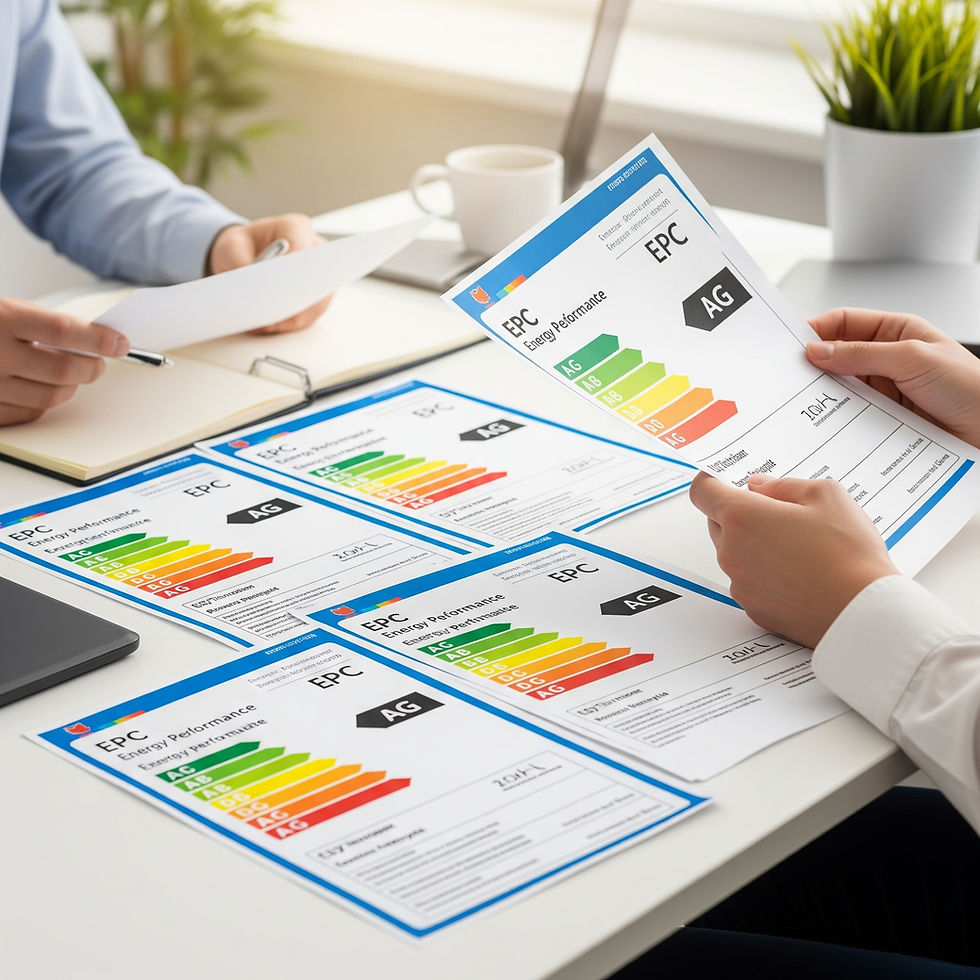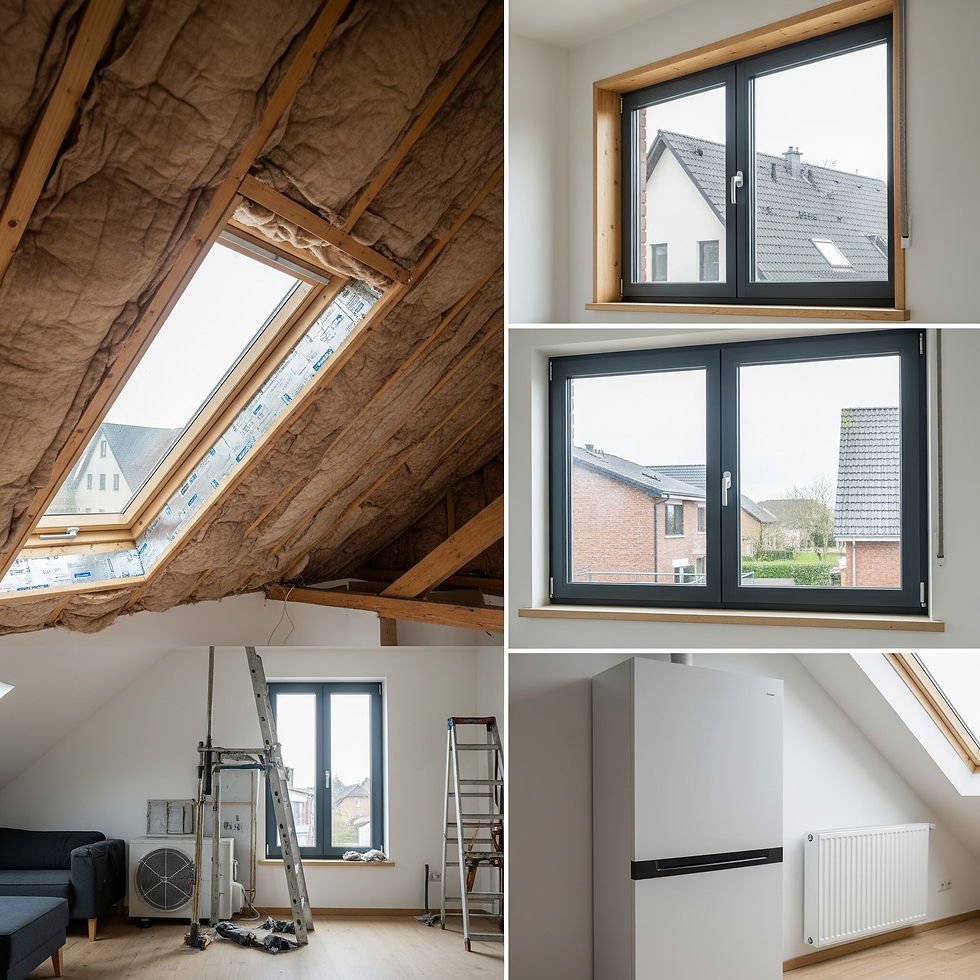Get Ready: New EPC & MEES Regulations Are Coming – What Landlords Need to Know
- Claudia Dessi

- May 30, 2025
- 3 min read

Here at WelcHome Properties, we're always keeping a close eye on the evolving landscape of property letting and management. Get Ready: New EPC & MEES Regulations Are Coming – What Landlords Need to Know. Two key areas that are seeing significant changes are Energy Performance Certificates (EPCs) and the Minimum Energy Efficiency Standards (MEES). These updates are set to impact landlords across England and Wales, and we want to ensure you're well-informed and prepared.
New EPC regulations!
You might have heard whispers, but the government's commitment to achieving Net Zero by 2050 means big changes are on the horizon for property energy efficiency. Let's break down what these mean for you.
The Lowdown on EPCs: A New Horizon and New EPC Regulations!
Currently, most rented properties require an EPC with a minimum rating of E. However, the government is proposing a significant uplift. The aim is for all newly rented properties to have a minimum EPC rating of C by 2025, and for all existing tenancies to meet this standard by 2028. This is a considerable leap from the current E rating and will require many properties to undergo improvements.
But it's not just about the letter grade. The way EPCs are assessed and what information they provide is also under review. The goal is to make them more accurate, reliable, and user-friendly, offering clearer guidance on how to improve a property's energy efficiency. We might see more detailed recommendations and a greater focus on the "fabric first" approach, ensuring the building itself is well-insulated before relying on heating systems.
MEES on the Move: Raising the Bar
Hand-in-hand with the new EPC regulations, changes are the updates to the Minimum Energy Efficiency Standards (MEES). These regulations dictate the lowest EPC rating a privately rented property can have. As mentioned, the current minimum is an E, but with the proposed EPC changes, MEES will naturally tighten.
This means that if your property doesn't currently meet the proposed C rating, you'll need to consider what improvements are necessary. This could involve anything from upgrading insulation and replacing inefficient boilers to installing double glazing.

What Does This Mean for WelcHome Properties Landlords?
We understand that these changes can feel like a lot to take in, but that's where WelcHome Properties comes in. We aim to make this transition as smooth as possible for you.
Here's a snapshot of what you should be considering now that new EPC regulations will be in place:
Assess Your Portfolio: Do you know the current EPC ratings of all your properties? This is the first crucial step.
Plan Ahead: Don't wait until the last minute. Start researching potential improvements and their costs.
Budget for Upgrades: Factor in the potential expense of energy efficiency improvements into your financial planning. While there are sometimes grants available, the primary responsibility for funding these upgrades typically lies with the landlord.
Understand the Exemptions: While the regulations are becoming stricter, there will likely still be exemptions for certain circumstances, such as properties where all "relevant improvements" have been made and the property still cannot reach the minimum standard, or where third-party consent for works cannot be obtained. We'll be keeping a close eye on the specifics of these exemptions as they are finalised.
"High Cost" Exemption: It's important to remember that there's currently a "high cost" exemption of £3,500 (inclusive of VAT) where landlords are not required to spend more than this amount on improvements. However, it is crucial to stay updated on whether this threshold will change with the new regulations.
Compliance is Key: Non-compliance can lead to penalties, so it's vital to stay on top of these requirements.
WelcHome Properties: Your Partner in Preparation
At WelcHome Properties, we're not just here to manage your tenants; we're here to help you navigate the ever-changing regulatory landscape. We can advise on:
Understanding Your EPCs: We can help you interpret your current EPCs and identify areas for improvement.
Connecting You with Trusted Tradespeople: We have a network of reliable contractors who can carry out energy efficiency upgrades.
Staying Informed: We'll continue to monitor government announcements and provide you with timely updates on these crucial regulations.
Maximising Your Investment: Improving your property's energy efficiency isn't just about compliance; it can also make your property more attractive to prospective tenants, reduce running costs for them, and potentially even increase its long-term value.
The journey towards a more energy-efficient rental sector is underway. By taking proactive steps now, you can ensure your properties are compliant, competitive, and contribute to a more sustainable future.
Don't hesitate to get in touch with the WelcHome Properties team to discuss how these upcoming changes might affect your portfolio. We're here to help you every step of the way.
Tel 02070888173 - info@welchomeproperties.com









Comments